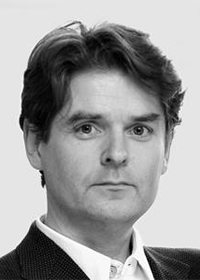
Prof. Pauen is a Professor of Philosophy at Humboldt-Universität zu Berlin and academic director of the Berlin School of Mind and Brain. His work focuses on the interface between neuroscience and philosophy. Central issues are consciousness, self-consciousness and free will. He is particularly interested in understanding how first-person experience is related to third person neuroscience and how empirical results concerning decision making can be integrated into an adequate theory of human freedom and responsibility. In addition, he works on the ethical consequences of neuroscientific research. He is collaborating with the Einstein Fellow Jesse Prinz to investigate the role of experimental methods for philosophy and the group of Einstein Visiting Fellow Vittorio Gallese “The Development of Identity: Socio-cultural practices from dyads to groups” on the impact of individual or joint (social) engagement with the arts (especially film).
Relevant (selected) publications
1.) Pauen, M., et al (2006). Im Schatten des Schönen: die Ästhetik des Häßlichen in historischen Ansätzen und aktuellen Debatten.
2.) Pauen, M., et al (2001). Ästhetik der Ähnlichkeit. Zur Poetik Und Kunstphilosophie Der Moderne, Hamburg.
3.) Pauen, M. (1995). Die Wissenschaft vom Schönen. Kunstpsychologie und die Ästhetik der Moderne. Zeitschrift für Philosophische Forschung, (H. 1), 54–75.
4.) Pauen, M. (1994). Dithyrambiker des Untergangs: Gnostizismus in Ästhetik und Philosophie der Moderne.
5.) Pauen, M. (1991). Schellengeklingel oder Offenbarung : Rationalität und ästhetische Lust in deutschen Kunsttheorien bis zur Moderne / Michael Pauen.
Relevant (selected) projects and activities
1.) PI Project “Das Gehirn als Beziehungsorgan. Interdisziplinäre Perspektiven auf die Entwicklung sozialer Fähigkeiten” (The brain as a relational organ. Interdisciplinary perspectives on the development of social capabilities), Volkswagen Foundation (2009-12). The project investigated the biological basis of the development of specifically human capacities like intentionality, interpersonality, empathy and language by focusing on the sociocultural environment in which they are developed.
2.) Speaker Project “Autonomie. Handlungsspielräume des Selbst”, Volkswagen Foundation (2009-12). The project critically questioned the concept of autonomy using conceptual, experimental and social psychology-based methods.
3.) Established Philosophy-Neurosciences-Cognition B.A. Program, Otto-von-Guericke-Universität Magdeburg
4.) Visiting Professor at the Institute for Advanced Study in Amherst, Massachusetts Fellow at Cornell University in Ithaca NY
